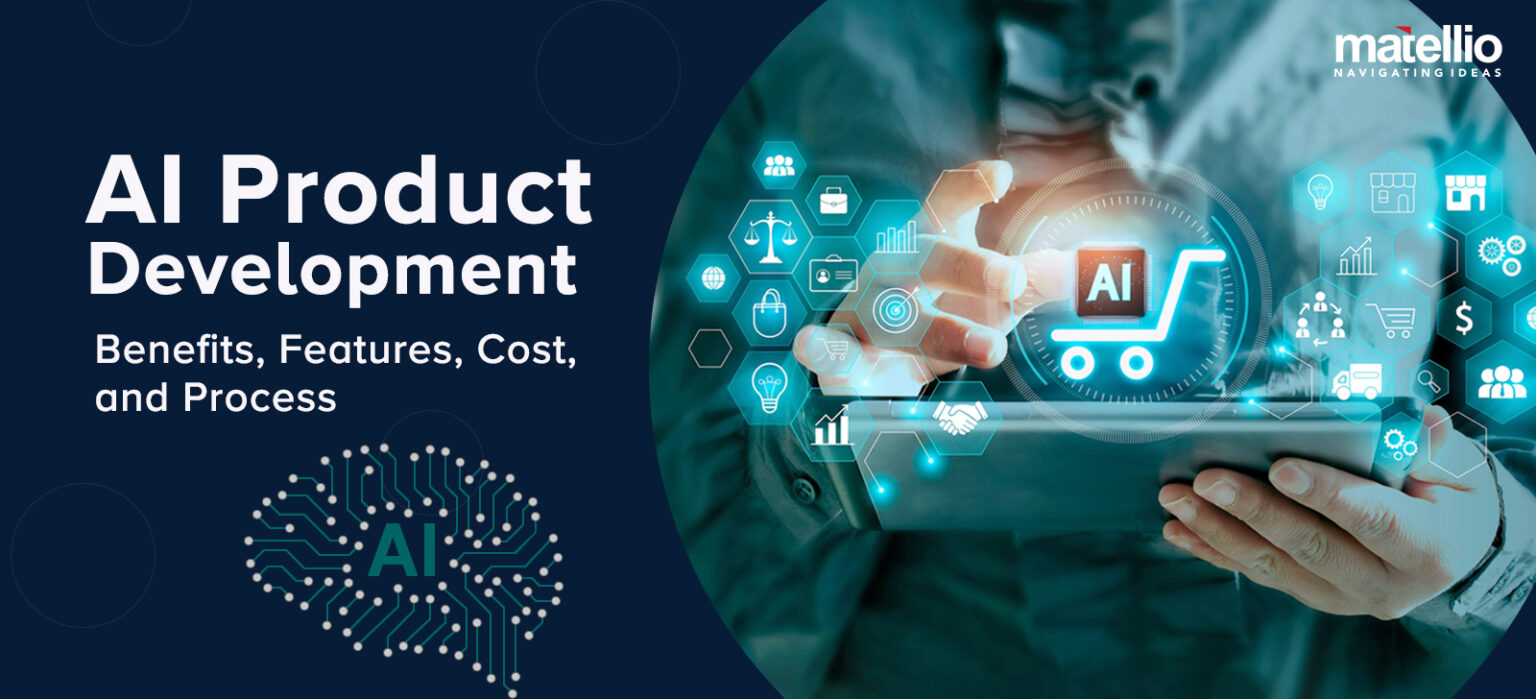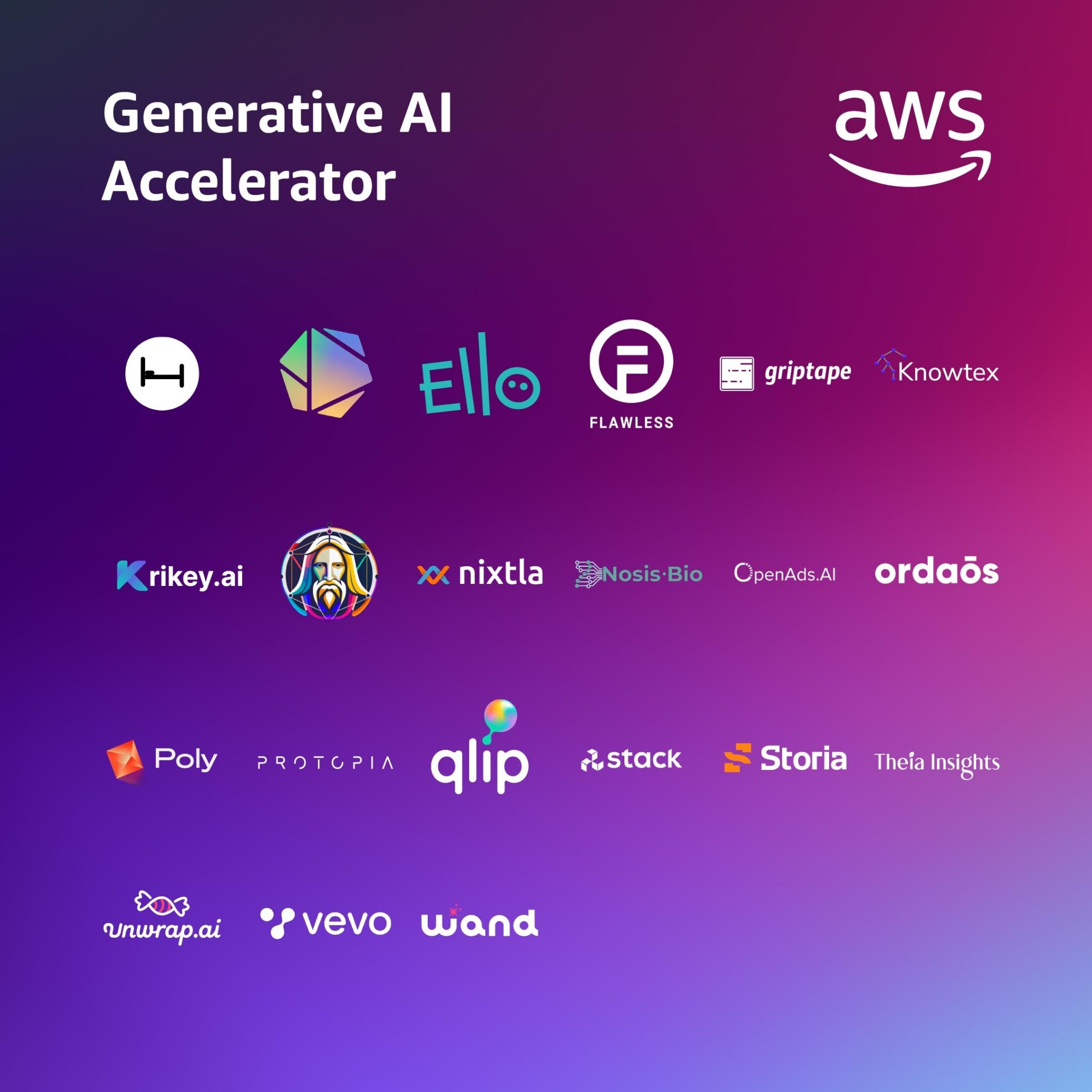
Level Up Your AI Game: Best Examples of Low-Code and No-Code AI Platforms
The world of Artificial Intelligence can seem intimidating, often conjuring images of complex algorithms and armies of data scientists. But what if you could tap into the power of AI without writing a single line of code? Enter the realm of low-code and no-code AI platforms. These revolutionary tools are democratizing AI, empowering businesses and individuals to build, deploy, and manage AI models with unprecedented ease.
Whether you’re looking to analyze data, predict future outcomes, automate tasks, or personalize customer experiences, there’s likely a low-code or no-code AI solution that can help. This listicle will guide you through some of the best examples, helping you find the perfect fit for your needs.
1. Akkio
Details: Akkio is a no-code AI platform designed for businesses aiming to leverage machine learning for data analysis, forecasting, and automation without needing specialized coding skills. It emphasizes real-time decision-making and allows users to engage with business and customer data, create live dashboards, and predict future outcomes.
Key Features:
No-Code AI Model Building: Create and deploy machine learning models without any coding knowledge.
Chat Explore for Data Analysis: Analyze data using natural language queries.
Predictive Modeling: Forecast trends and identify patterns by training AI models on your datasets.
Generative Reports & BI Dashboards: Automatically generate AI-powered reports and real-time insights.
Time Series Analysis & Forecasting.
API Integrations: Connect Akkio with existing tools and workflows.
Pricing: Akkio offers several plans:
Free Plan: Allows users to view insights, reports, dashboards, and chats without editing.
Basic Plan: $49 per user/month, includes Chat Explore, Chat Data Preparation, and live generative BI dashboards.
Pro Plan: $99 per user/month, offers advanced machine learning capabilities like time series forecasting and advanced model operations.
A “Build-On Package” starting from $999/month is also available for more extensive needs.
Some sources also mention a “Starter” plan at $49/month (billed annually) and a “Pro” plan at $499/month (billed annually), with custom pricing for “Business” needs. It’s best to check their official pricing page for the latest details.
Ideal User/Use Case: Businesses and teams (especially in sales, marketing, and finance) looking to quickly implement AI for tasks like lead scoring, content optimization, revenue forecasting, and anomaly detection without a dedicated data science team.
Unique Aspects: Akkio’s strength lies in its user-friendly, chat-based interface for data analysis and its focus on generating actionable business intelligence quickly. It supports complex data cleaning and offers a scalable platform.
2. Google Cloud AutoML
Details: Google Cloud AutoML is a suite of machine learning products enabling developers with limited ML expertise to train high-quality, custom models. It automates many aspects of the model development process, leveraging Google’s advanced research and technologies like transfer learning and Neural Architecture Search. AutoML is part of Vertex AI, Google Cloud’s unified machine learning platform.
Key Features:
Custom Model Creation: Build models for image recognition, text analysis, translation, video intelligence, and structured data without extensive coding.
Automated ML Workflow: Automates data preprocessing, feature engineering, model selection, and hyperparameter tuning.
Specific AutoML Products: Includes AutoML Vision, AutoML Natural Language, AutoML Translation, AutoML Video Intelligence, and AutoML Tables.
Data Labeling Assistance: Helps in labeling large datasets.
Integration with Google Cloud Services.
Pricing: Google Cloud AI pricing is generally pay-as-you-go. New customers may receive free credits. Specific AutoML product pricing (now part of Vertex AI) is based on usage, such as training hours and prediction volume. For example:
AutoML Vision: Training costs ~$3.465 per node hour (free tier for the first 40 node hours/month for image classification). Prediction costs vary.
AutoML Natural Language: Training is ~$3.00 per hour (free tier for the first hour/month). Prediction costs are per 1000 text records.
AutoML Tables: Training is ~$21.00 per node hour (free tier for the first 6 node hours/month). Prediction costs are based on the number of predictions and node hours.
(Detailed pricing for each AutoML component can be found on the Vertex AI pricing page).
Ideal User/Use Case: Developers and businesses needing to build custom AI models for specific tasks (like image classification, sentiment analysis, or fraud detection from tabular data) who may not have deep ML expertise but want to leverage Google’s powerful infrastructure. It’s suitable for enterprises and startups.
Unique Aspects: AutoML excels at providing access to Google’s cutting-edge ML research through an automated and more accessible interface. Its tight integration with the broader Google Cloud ecosystem makes it powerful for scalable solutions.
3. Amazon SageMaker Canvas
Details: Amazon SageMaker Canvas is a no-code service that empowers business analysts and other users without machine learning expertise to build ML models and generate predictions using a visual, point-and-click interface. It streamlines the end-to-end ML lifecycle, from data preparation to model deployment.
Key Features:
No-Code ML Model Building: Visually browse, prepare, and analyze data, then train accurate ML models without writing code.
Multiple Model Types: Supports regression, classification (binary and multi-class), time-series forecasting, NLP, and computer vision tasks.
Automated Model Creation (AutoML): Automatically cleans and prepares data, selects algorithms, trains models, and tunes them for best performance.
Data Preparation: Connect to various data sources (S3, Redshift, Snowflake, local files, etc.) and perform data transformations.
Model Evaluation & Explainability: Understand model performance with easy-to-understand metrics and see how each data input influences prediction results.
Predictions: Generate single or batch predictions.
Collaboration: Share models with data scientists in SageMaker Studio.
Pricing: SageMaker Canvas pricing is based on several factors:
Workspace Instance (Session Hours): $1.90 per hour while the application is active.
Custom Model Training: Charges are based on SageMaker training and processing hours used. For tabular models, this can range from ~$2.03 to $4.89 per hour of training time, depending on the instances used.
Data Processing: For datasets larger than 5GB, Amazon EMR Serverless charges apply.
Ready-to-Use Models: If Canvas uses underlying Amazon AI services (like Rekognition or Comprehend), their respective pricing applies.
Free Tier: AWS offers a free tier for SageMaker Canvas, typically including 160 session hours per month for the first two months.
Ideal User/Use Case: Business analysts, data analysts, and other line-of-business users who want to leverage machine learning for tasks like churn prediction, fraud detection, sales forecasting, and inventory optimization without needing to code.
Unique Aspects: SageMaker Canvas provides a truly no-code visual interface integrated within the AWS ecosystem, making it accessible for non-technical users while still offering a path to collaborate with data science teams using SageMaker Studio.
4. DataRobot
Details: DataRobot offers an enterprise AI platform designed to automate the end-to-end process of building, deploying, and managing machine learning models. It caters to a broad range of users, from business analysts to experienced data scientists, enabling them to build and deploy AI applications rapidly.
Key Features:
Automated Machine Learning (AutoML): Automates tasks like data preparation, feature engineering, algorithm selection, hyperparameter tuning, and model deployment.
Automated Time Series: Specialized capabilities for time-series forecasting.
MLOps: Tools for model deployment, management, and monitoring in production.
Explainable AI (Trusted AI): Provides insights into how models make predictions, fostering transparency and trust.
No-Code App Builder.
Integration with various data sources and business applications.
Pricing: DataRobot’s pricing is typically customized based on business needs and the specific modules licensed. Some sources indicate license costs can range significantly, for example, from £20,000 to £750,000 a year depending on the scale and modules. They offer a free trial. It’s best to contact them for a custom quote.
Ideal User/Use Case: Enterprises and organizations looking for a comprehensive, end-to-end platform to scale their AI initiatives, automate machine learning workflows, and manage the entire AI lifecycle. Useful for various industries including healthcare, financial services, and manufacturing.
Unique Aspects: DataRobot is known for its robust automation capabilities across the entire AI lifecycle, its focus on MLOps, and its features promoting responsible and explainable AI. It supports both generative and predictive AI.
5. Obviously.AI
Details: Obviously AI is a no-code AI platform that allows users, particularly non-technical ones, to build and deploy predictive models from their data quickly. It focuses on making predictive analytics accessible without needing to write code or have deep data science knowledge.
Key Features:
No-Code AI Model Building: Intuitive drag-and-drop interface for creating ML models.
Rapid Deployment: Go from raw data to production-ready models in minutes.
Automated Machine Learning (AutoML): Handles algorithm selection, feature engineering, and hyperparameter tuning automatically.
Integrations: Connects with various data sources like spreadsheets, databases, and CRMs.
Time Series Forecasting.
What-if Scenarios & Shareable Reports.
Pricing:
Offers a free trial.
Paid plans were previously cited to start around $99 per month.
More recent information suggests a “Limited Access” plan at $300/month and a “Full Access” plan at $999/month, both with 14-day free trials. A “Free” plan for students and non-profits is also mentioned.
Some sources indicate a starting price of $399.
Given the variations, it’s best to check their official website for the most current pricing.
Ideal User/Use Case: Small to medium businesses, marketing professionals, product managers, and business analysts who want to quickly build predictive models for use cases like customer behavior prediction, sales forecasting, and risk assessment without a dedicated data science team.
Unique Aspects: Emphasis on speed and simplicity, allowing users to ask questions in natural language to get AI-generated predictions. Strong focus on non-technical users.
6. Teachable Machine
Details: Teachable Machine is a web-based tool from Google that makes creating machine learning models fast, easy, and accessible to everyone, regardless of their technical background. You can train a computer to recognize your own images, sounds, and poses without coding.
Key Features:
No-Code Model Training: Train models directly in your browser.
Supports Multiple Data Types: Image, audio, and pose projects.
Real-Time Learning & Testing: Get immediate feedback as you train and test your model.
Export Capabilities: Export models to TensorFlow.js, TensorFlow Lite, Coral, Arduino, and more for use in websites, apps, and physical machines.
On-Device Privacy Option: Can be used entirely on-device, with no data leaving your computer.
Pricing: Free to use.
Ideal User/Use Case: Educators, students, artists, designers, hobbyists, and anyone looking for a simple way to experiment with and learn the basics of machine learning. Excellent for rapid prototyping of AI concepts.
Unique Aspects: Its extreme simplicity, immediate feedback loop, and diverse export options make it a fantastic educational tool and a quick way to build simple but functional ML models for creative projects or basic applications.
7. Create ML
Details: Create ML is an Apple technology that allows users to create and train custom machine learning models directly on a Mac using familiar tools like Swift and macOS playgrounds, or via the Create ML app. It’s designed to simplify model training without requiring deep ML expertise.
Key Features:
Create ML App: An intuitive app for training models with a visual interface.
Create ML Frameworks: Swift frameworks for programmatic model creation and on-device training in iOS, iPadOS, macOS, etc.
Multiple Model Types: Supports image classification, object detection, style transfer, sound classification, text classification, tabular regression/classification, recommendation, action classification, and more.
On-Device Training: Leverages Mac’s CPU and GPU for fast training.
Interactive Evaluation & Previews: Visually assess model performance.
Outputs Core ML Models: Ready for integration into Apple ecosystem apps.
Pricing: Create ML is included as part of Apple’s developer tools (like Xcode) and does not have a separate explicit cost.
Ideal User/Use Case: Apple developers (iOS, macOS, etc.) who want to build custom machine learning models for their apps without extensive ML knowledge. Great for creating personalized and adaptive experiences within the Apple ecosystem.
Unique Aspects: Deep integration with the Apple ecosystem and focus on on-device training and performance. The Create ML Components framework allows for more customization.
The rise of low-code and no-code AI platforms signifies a major shift, making powerful AI capabilities accessible to a broader audience. Whether you’re a business looking to gain a competitive edge or an individual curious about AI, these tools offer a fantastic starting point to explore, experiment, and innovate.
Inspired by the potential of these no-code AI platforms? If you’re ready to move from exploring to building and launching your own AI-powered solutions without getting bogged down in code, discover how the AI Product Accelerator can guide you through a structured program designed for aspiring AI builders and entrepreneurs.

/read more
Related Articles


Mastering the Best AI Product Development Techniques


